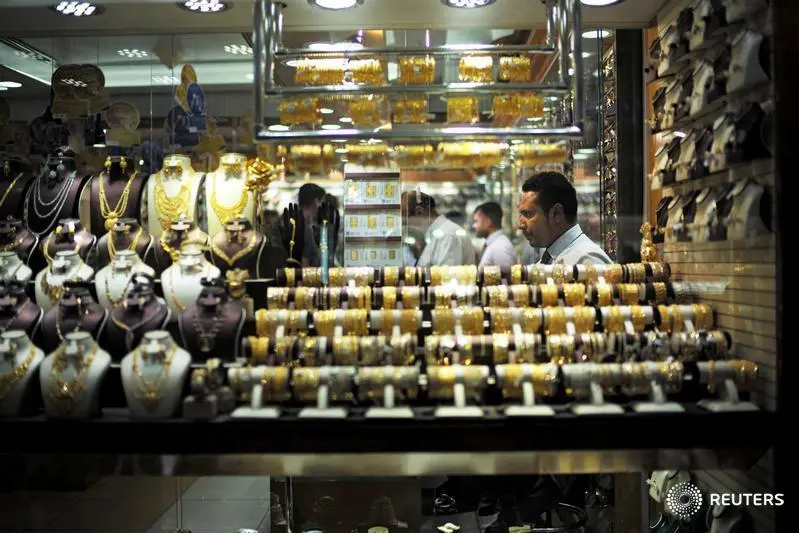PHOTO
Dubai's Gold and Commodities Exchange is looking to broaden its appeal to financial institutions by creating new "mini-gold' contracts that banks could offer to retail investors and by developing its foreign exchange product range by offering spot market contracts, its CEO has told Zawya.
The exchange, which had its busiest year on record in 2018, with the number of contracts exchanged by participants increasing by 28 percent to 22.26 million, benefitted from the greater volatility that took place in global markets last year - most notably via its futures contracts offered on various currencies, with Indian rupee futures being its best-performing asset. Trading in rupee futures increased by 25 percent in 2018, contributing to the record $474.96 billion worth of contracts that changed hands via DGCX last year - beating the exchange's previous record of $448 billion set in 2013. Trading in futures contracts on G6 currencies (the United States dollar, euro, Japanese yen, British pound, Canadian dollar and Australian dollar) also increased by 9 percent last year. Strong trading on the exchange also continued in January, when 1.93 million contracts worth $38.09 billion changed hands.
DGCX's chief executive, Les Male, said that although the exchange has a variety of trader types, including high-frequency traders, proprietary traders, commercial buyers and corporate companies looking to hedge risks, “we could do with more” financial institutions.
One way in which it is looking to do this is to offer a "mini gold" contract that will offer retail investors the chance to buy gold in smaller amounts. Currently, lot sizes traded on the exchange are for 32 troy ounces (around 1kg), according to DGCX's website, and with gold currently trading at around $1,321 per troy ounce on Friday, 15 February, participating in the market can be prohibitively expensive for retail buyers.
"We've been working with one of the local banks over the past year, in terms of a retail gold (contract)," Male told Zawya on the sidelines of the Richcomm Global Commodity Outlook Conference in Dubai last week.
"What do we mean by that? It's a size of contract that is attractive to the retail sector.
"Retail consumers are never going to be on a regulated, fully-compliant marketplace like ours. We have that infrastructure and that security that we can offer to banks. Banks can then offer it to their clients. We're tapping into that customer chain and coming up with a mini-gold (contract)," Male explained.
"It's tapping into the image of Dubai. People want the shiny, shiny stuff," he said.
Spotting potential
The exchange's other major diversification effort this year will be in offering spot currency contracts for foreign exchange investors to complement its existing range of futures contracts on 10 currencies (the G6 currencies, plus the Indian rupee and Chinese yuan, among others).
For spot trading, it is currently looking U.S. dollar/euro, and dollar/pound contracts, initially, but Male said "that doesn't preclude others".
"We are a member-led exchange, in the sense that I want them to have much more of an involvement and drive in terms of our product evolution," Male said. "Who are we, as an exchange, to tell the market what they trade? No, no, it's the other way around."
A number of banks in the United Arab Emirates - including Emirates NBD and RAKBank - already offer investors the opportunity to purchase gold through dedicated accounts, according to individual banks' websites.
Demand for physical gold in the form of jewellery was "weak' in the Middle East & Turkey region in 2018, according to a report published at the end of January by the World Gold Council, with sanctions in Iran leading to a 35 percent year-on-year decline in jewellery purchases, although gold bars and coin sales in Iran doubled as the country’s bank released more gold coins onto the market.
Demand from the United Arab Emirates and Saudi Arabia also fell.
"Both markets were affected by the introduction of 5 percent VAT in Q1 2018. Purchasing activity ahead of the tax change boosted Q4 2017 demand, making Q4 2018 demand all the weaker in comparison," the World Gold Council study said.
Further reading:
- Indian rupee set for volatility ahead of general election
- Commodities: A volatile year keeps traders busy
- DGCX and FXCM Group sign MoU to collaborate on new FX products
- Central banks bought more gold in 2018 than any year since 1967- WGC
- Gold hits 6-month peak on stock sell-off, decelerating economy
(Reporting by Michael Fahy; Editing by Mily Chakrabarty)
Our Standards: The Thomson Reuters Trust Principles
Disclaimer: This article is provided for informational purposes only. The content does not provide tax, legal or investment advice or opinion regarding the suitability, value or profitability of any particular security, portfolio or investment strategy. Read our full disclaimer policy here.
© ZAWYA 2019





















